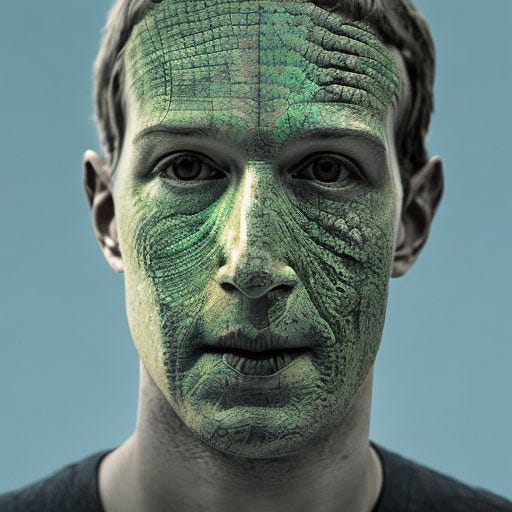Understanding Mark Zuckerberg's Response to "The Social Network"
Written on
Chapter 1: Mark Zuckerberg's Perspective
Imagine being Mark Zuckerberg, the mastermind behind Facebook, navigating the challenges of transitioning from a tech prodigy to a billionaire. Now, picture a major film, "The Social Network," debuting in theaters, presenting a less-than-flattering depiction of your journey to create Facebook. Why, then, did Zuckerberg refrain from launching a barrage of criticism?
Zuckerberg’s approach is a testament to his strategic acumen. A vocal backlash might have escalated tensions, transforming a cinematic portrayal into a significant public relations dilemma. Rather than engaging in an unnecessary confrontation, Zuckerberg demonstrated a wise restraint, avoiding actions that could potentially damage his public persona.
Furthermore, it’s essential to appreciate the nature of storytelling in cinema. Hollywood thrives on drama, conflict, and exaggerated characters, and "The Social Network" is no exception. Zuckerberg recognized that film narratives are interpretations, not strict factual accounts. Instead of being offended, he acknowledged the primary objective of the film: to entertain the audience.
However, Zuckerberg did have his insights to share, albeit in a more understated manner. He acknowledged the film’s accuracy in depicting his signature attire—hoodies and flip-flops—but also pointed out certain inaccuracies with a measured response. This reaction showcased his ability to absorb criticism without retaliating.
The timing of Zuckerberg's response also played a significant role. As the leader of a rapidly expanding social media platform, he was likely preoccupied with strategic priorities. In the midst of navigating Facebook's explosive growth, engaging in a public dispute about a movie might have seemed trivial compared to more pressing matters.
Consider the alternative: What if Zuckerberg had opted to publicly denounce the film? Engaging in a verbal sparring match with Hollywood could have had consequences far beyond the entertainment industry, potentially affecting Facebook's narrative and its public perception.
In summary, Zuckerberg’s silence was not merely an avoidance of controversy; it was a deliberate strategy rooted in a profound understanding of public relations and priorities. As we delve deeper into this narrative, we uncover the intricate relationship between perception and reality for high-profile individuals.
GAME CHANGER MOMENT
Stay tuned for more insights into the complex strategies employed by influential figures, as we continue to explore the nuances of strategic communication.
Section 1.1: The Impact of Cinematic Storytelling
Movies often amplify conflicts and dramatize real-life events, leading audiences to perceive them as facts. "The Social Network" serves as a prime example of this phenomenon.
This video discusses how the film may have influenced public perception of Zuckerberg and Facebook.
Subsection 1.1.1: The Balance of Narrative and Reality

The line between narrative and reality can often blur, especially in the context of powerful figures like Zuckerberg.
Section 1.2: Strategic Communication in Action
Understanding how influential personalities navigate their public image is essential in today's media landscape.
Chapter 2: The Future of Facebook's Narrative
This video explores whether audiences can still appreciate "The Social Network" in light of its dramatized portrayal of Zuckerberg's life and the complexities of social media.